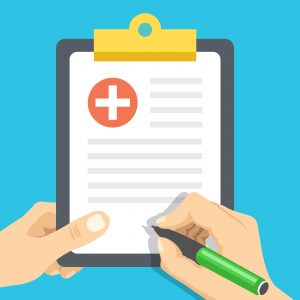Clinical Research Translation
Language Scientific has been providing medical and clinical research translation services to Clinical Research Organizations (CRO) for over 20 years. Our customers in the clinical research industry include Quintiles, PharmaNet, Bioclinica, and PRA International. We translate a wide variety of medical documents from Protocols and Pharmacological Studies to Informed ConsentForms, Patient Questionnaires and Interactive Voice Response (IVRS) prompts.
Clinical Document Translation must be both Medically Precise and Culturally Sensitive
CROs are conducting clinical trials worldwide on behalf of pharmaceutical companies. While this increases the patient pool, and the opportunity to get data from diverse ethnic backgrounds at a reduced cost, there is an accentuated need for accuracy in communication. This pertains not only to the word-for-word translations, but to the concepts of the diseases, side-effects and outcomes being discussed.
A large portion of the communication in the clinical trial process takes place between clinicians and patients. Depending on the study site and the level of literacy of the patients, the patient-facing materials must be translated to match their reading levels, and the cultural component is equally important. For instance, in a recent questionnaire, a patient in rural India was asked,
Has a partner become pregnant since your last study visit?
When this was presented to the patients, they were uncomfortable. The translation was 100% accurate. But the concept was not. In rural India it is relatively uncommon and improper to speak of impregnating a “partner.” It would have been more appropriate to say “wife” in this case.
Beyond Translation — Linguistic Validation and Cross-Cultural Adaptation of Clinical Instruments
In addition to clinical research translation, we also provide linguistic validation of Patient Reported Outcomes (PRO)—patient questionnaires used as clinical instruments and scales in the conduct of clinical trials of new drugs. Often CROs must perform back translation and reconciliation, cognitive debriefing and harmonization of the patient responses, so that the data is accurate and consistent across languages. It is crucial to have clean data for the purpose of the actual data analysis. Faulty or inaccurate translations can render the trial inadequate and the drug company loses time and potential revenue.
Our Medical Translators are also Clinicians
Language Scientific is a long-standing partner for Clinical Research Organizations. Our translators are handpicked doctors and clinicians who understand the content based on first hand interaction with patients locally. Our doctor translators are provided with training on the methodology of the clinical trial process and the end client’s requirements. Owing to a strict internal quality control protocol, we are able to provide a Certificate of Translation Accuracy with each project. Language Scientific’s unique methodology that clients depend on delivers consistently clear, accurate translation of high-value information.
The typical documents we translate for our Clinical Industry clients include:
- Adverse Event Source Documents
- Case Report Forms (CRFs)
- Data Sheets
- Development Safety Update Reports (DSURs)
- Dossiers
- Drug Registration Documentation
- Endpoint Adjudication Documents
- Informed Consent Forms
- Insert Leaflets
- Instructions for Use (IFUs)
- Marketing Collateral
- Master Batch Records
- Package Inserts and Labels
- Patient Diaries
- Patient Recruitment Materials
- Patient Reported Outcome Measures (PROMs)
- Patient Source Documents, Admission and Discharge, Labs
- Pharmacological Studies
- Product Labels
- QoL Scales
- Regulatory Documents
- Scientific Papers
- Study Protocols
- Suspected Unexpected Serious Adverse Reactions (SUSARs)
- Toxicology Reports
Languages We Translate
Language Scientific provides clinical research translation services in over 215 global languages. This broad range of languages is often important when translating clinical trial documentation, due to increasing globalization of clinical research. Nevertheless, most of our medical translation work involves translation between English and the major world languages such as Chinese, French, German, Hebrew, Italian, Japanese, Korean, Portuguese, Russian and Spanish.
